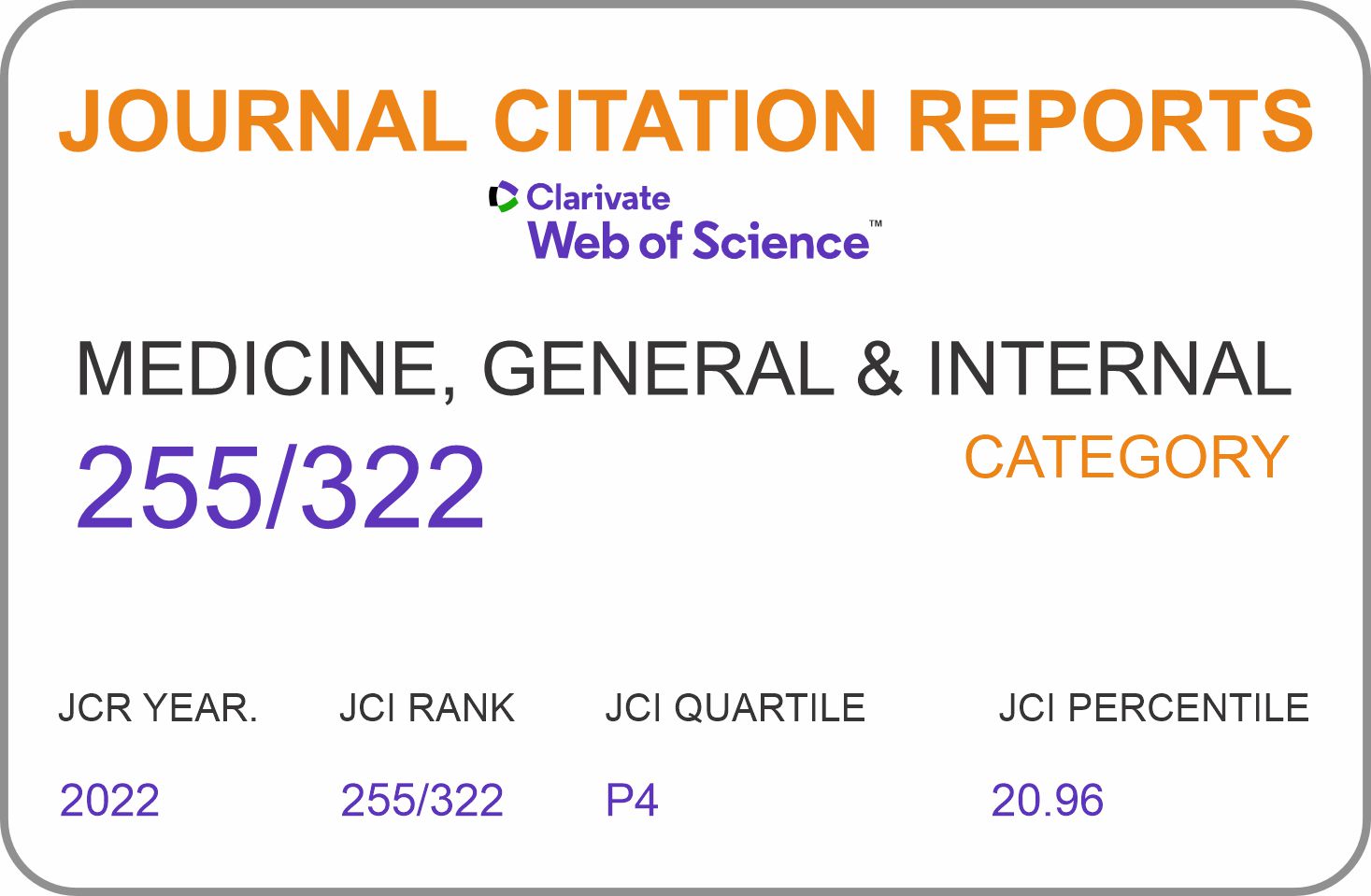THE PANDEMIC AS A CHALLENGE TO BIOETHICS
DOI:
https://doi.org/10.35434/rcmhnaaa.2023.162.1892Keywords:
COVID-19, Bioethics, Vaccines, Infodemic, Access to Health ServicesAbstract
This article aims to offer a genealogical positioning of the problems that have arisen around the COVID-19 pandemic, it is examined through four moments: a) the emergence of the virus and the disease, b) the spread of the virus and declaration of the pandemic, c) control of the disease and contagion, and d) discovery of the vaccine and the post-pandemic. With this analysis we can affirm that bioethics is capable of developing a critical reflection on the need to limit the aims of predation as an objective: commercial health, relationship between human beings, environment and animal species in a natural habitat, human rights, racial discrimination, infodemic, access to resources and medical attention, "new normalities in the post-pandemic". Thus, bioethics must be projected towards a critical global and social bioethics based on systematic studies in health and life sciences that look at human behavior within moral principles.
Downloads
Metrics
References
World Health Organization (2020). Geneva. Pneumonia of unknown cause – China. Citado el 15 de enero 2023. Disponible en: https://bit.ly/3ofBOLp
World Health Organization (2020). Emergencies preparedness. Citado el 18 de enero 2023. Disponible en: https://bit.ly/3ofBOLp
Organización Mundial de la Salud. Alocución de apertura del Director General de la OMS en la rueda de prensa sobre la COVID-19 celebrada el 11 de marzo de 2020. Ginebra. Citado el 23 de enero 2023. Disponible en: https://www.who.int/es/director-general/speeches/detail/who-director-general-s-opening-remarks-at-the-media-briefing-on-covid-19---11-march-2020
World Health Organization. (2020c). Geneva. Novel Coronavirus – China. OMS. Emergencies preparedness. Citado el 8 de enero 2023. Disponible en: http://www.who.int/csr/don/12-january-2020-novel- coronavirus-china/en/
Neumann-Podczaska A, Al-Saad SR, Karbowski LM, Chojnicki M, Tobis S, Wieczorowska-Tobis K. COVID 19 - Clinical Picture in the Elderly Population: A Qualitative Systematic Review. Aging Dis 2020;11(4):988–1008. Disponible en: DOI: doi.org/10.14336/AD.2020.0620
World Health Organization. Mental health and COVID-19. Geneva: WHO; 2020. Citado el 15 de enero 2023: Disponible en: https://bit.ly/3k2Dard
Equipo editorial. COVID-19 y tu salud mental [internet]. EEUU: Mayo Clinic; 2020 Citado el 28 de enero 2023. Disponible en: https://mayocl.in/3bIoIAo
CEPAL (Comisión Económica para América Latina y el Caribe) (2021), Estudio Económico de América Latina y el Caribe, 2021 (LC/PUB.2021/10-P), Santiago, 2021. Citado el 11 de diciembre de 2022. Disponible en: https://statistics.cepal.org/portal/cepalstat/index.html?lang=es
CEPAL (Comisión Económica para América Latina y el Caribe) (2021), “La paradoja de la recuperación en América Latina y el Caribe. Crecimiento con persistentes problemas estructurales: desigualdad, pobreza, poca inversión y baja productividad”, Informe Especial COVID-19, N° 11, Santiago, julio. Citado el 11 de diciembre de 2022. Disponible en: https://statistics.cepal.org/portal/cepalstat/index.html?lang=es
CEPAL (Comisión Económica para América Latina y el Caribe) (2021), Panorama Social de América Latina, 2020 (LC/PUB.2021/2-P/Rev.1), Santiago. Citado el 18 de diciembre de 2022. Disponible en: https://statistics.cepal.org/portal/cepalstat/index.html?lang=es
CEPAL (Comisión Económica para América Latina y el Caribe) (2021), “El avance de la vacunación contra el COVID-19 en América Latina y el Caribe”, Citado el 23 de diciembre de 2022. Disponible en: https://statistics.cepal.org/portal/cepalstat/index.html?lang=es
Instituto de Salud Carlos III. (2020). Informe del Grupo de Análisis científico de coronavirus del ISCIII. Origen del SARS-COV-2. Gobierno de España. Recuperado de https://www.isciii.es/InformacionCiudadanos/DivulgacionCulturaCientifica/DivulgacionISCIII/Paginas/Divulgacion/DivulgacionInformeOrigenCoronavirus.aspx el 15 de mayo de 2021
Foro Económico Mundial (2020) The Global Risks Report 2020. Recuperado de http://reports.weforum.org/ el 15 de mayo de 2021
CEPAL (Comisión Económica para América Latina y el Caribe) (2021), Lineamientos y propuestas para un plan de autosuficiencia sanitaria para América Latina y el Caribe (LC/TS.2021/115), Santiago. Citado el 26 de diciembre de 2022. Disponible en: https://statistics.cepal.org/portal/cepalstat/index.html?lang=es
CEPAL (Comisión Económica para América Latina y el Caribe) (2021), Observatorio Demográfico América Latina y el Caribe 2020 (LC/PUB.2020/20-P), Santiago. Citado el 17 de diciembre de 2022. Disponible en: https://statistics.cepal.org/portal/cepalstat/index.html?lang=es
N. Zhu, D. Zhang, W. Wang, X. Li, B. Yang, J. Song, et al.A novel coronavirus from patients with pneumonia in China, 2019 N Engl J Med., 382 (2020), pp. 727-733. Disponible en: 10.1056/NEJMoa2001017
Camargo Rubio RD. Visión holística de la bioética en la pandemia COVID-19 [Holistic view of bioethics in the COVID-19 pandemic]. Acta Colombiana de Cuidado Intensivo. 2022;22:S79-S92. doi:10.1016/j.acci.2021.03.003
18. Ibáñez, Franklin, & Suarez, Pyro. (2022). Vacunagate: ¿era posible justificar moralmente el caso peruano?. Letras (Lima), 93(138), 168-183. Epub 22 de diciembre de 2022.https://dx.doi.org/10.30920/letras.93.138.12
Downloads
Published
How to Cite
License
Copyright (c) 2023 Diego Fernando Velasco Cañas, Donovan Casas Patiño, Alejandra Rodríguez Torres , Isaac Casas Patiño, Georgina Contreras Landgrave

This work is licensed under a Creative Commons Attribution 4.0 International License.















